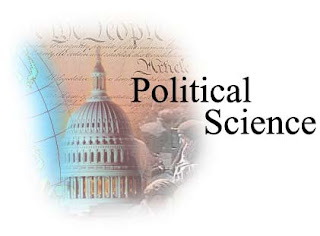Political science is science or not science
Aristotle,the father of political science considered political Science as the master of all sciences. Writers like
Laski, Burke and Maitland used the title politics instead of political science.
Social sciences like history, sociology, political science, and economics also follow the scientific method while studying social phenomena. Laboratory tests are not possible in social sciences.
The basic difference lies in the fact that physical sciences study about matter whereas social sciences study about human beings. Hence the results obtained in physical sciences are precise, perfect and exact at all times. That is not possible in social sciences. This does not mean that political science claim to be a science can be denied.
It is true that political science cannot be an exact science, since its laws and conclusions cannot be expressed in precise terms and it cannot predict political events accurately. Besides social and political relationships are constantly changing and what may be true of them today may not be true in the future. Hence political science can be called both a science and an art.
Relationship of political science with history and sociology
Political science and history:
Relationship of political science with history and sociology
Political science and history:
There is closed and intimate relationship between political science and history. The relationship between political science and history is beautifully explained by.
John Seeley. “History without political science has no fruit and political science without history has no root”. To quote the same author again,
“Politics is vulgar when not liberalized by history and history fades into mere literature when it loses sight of its relation to politics”.
Freeman. “History is past politics and politics is present history “. They are complementary to each other.
Montesquieu and Bryce made use of historical materials to study political science.
Lord Bryce claims that, political science stands midway between history and politics, between the past and the present. It has drawn its materials from the one; it has to apply them to the other.
History deals with past events, movements revolutions, national struggles etc. and gives information about the origin and development of political institutions and thought. When various issues, concepts and terms, ideologies, are discussed in political science, their historical development is also taken into consideration.
Political science and sociology:
Sociology is the root of all social sciences.
Auguste Comte is the father of sociology. Sociology is the study of Society. Political science and sociology are inter-related political scientists and sociologists contribute mutually for the benefit of whole society. For example, the institution of marriage and related problems after that, namely divorce are within the domain of sociology. How to solve these problems in a harmonious way for better standard of life is within the competence of political science.
What was once a sub-field of sociology has now takes the form of “political sociology” which is now a legitimate subfield of political science.
Historical method of political science
The present is the gift of the past. This is the reason why we seek help of history, when we study the origin, development and the present nature of such political institution as the State and the Government. The historical method supplements the experimental method. Montesquieu, Saving, Seeley, Maine Freeman and Laski are some of the eminent exponents of historical method. Sabine and other traditional writers attached great importance historical approach. “A political theory” according to Sabine is always advanced in reference to a pretty specific situation”. It is therefore essential to understand “the time, place and circumstances in which it was produced”.
Historical approach: When international political order is studied with reference to its past, it is known as historical approach. The historical approach to the study of international political order emphasizes the following:
1. Domestic and international political order is not static but dynamic in nature.
2. Historical background of every nation is important in analyzing the present international political order.
Institutional approach
This chapter is about the international political components that one has to understand from both historical and institutional perspectives. For a better understanding, the chapter is divided into two major parts.
The first part explains the term international political order from both historical and institutional framework.
In the second part, international and regional organizations are explained in detail to illustrate how far they were successful in maintaining international political order.
Students of political science must remember that international political order is not a static one but dynamic in nature. In the context of present globalized economic order and communication revolutions we live in a different world of political order.
The history of international political order is written in terms of continuity and change in domestic and international political relations. As a step in the direction of understanding such continuity and change, this chapter explores some ideas drawn from an institutional perspective. An institutional perspective is characterized in terms of organized and formalized efforts in order to bring the desired political order at regional and international level. Students of political science try to understand how and when international political order are created, maintained, changed, and abandoned.
Many of the key questions belong to a wider class of difficult questions about the dynamics of social order and development. How can order develop out of anarchy? What stabilizes an order? When and how does a stables order fall apart? How does peaceful change occur? Why do peaceful relations sometimes find themselves drawn into less peaceful confrontations? How is the search for order among collectivities linked to the search for order within them?
This chapter explains such questions. It considers a few distinctive ways of thinking about the history and existing international and regional political organizations and elaborates some of them as an example, the League of Nations, UNO, NAM and SAARC, which could be called an institutional approach to such thinking.

No comments:
Post a Comment